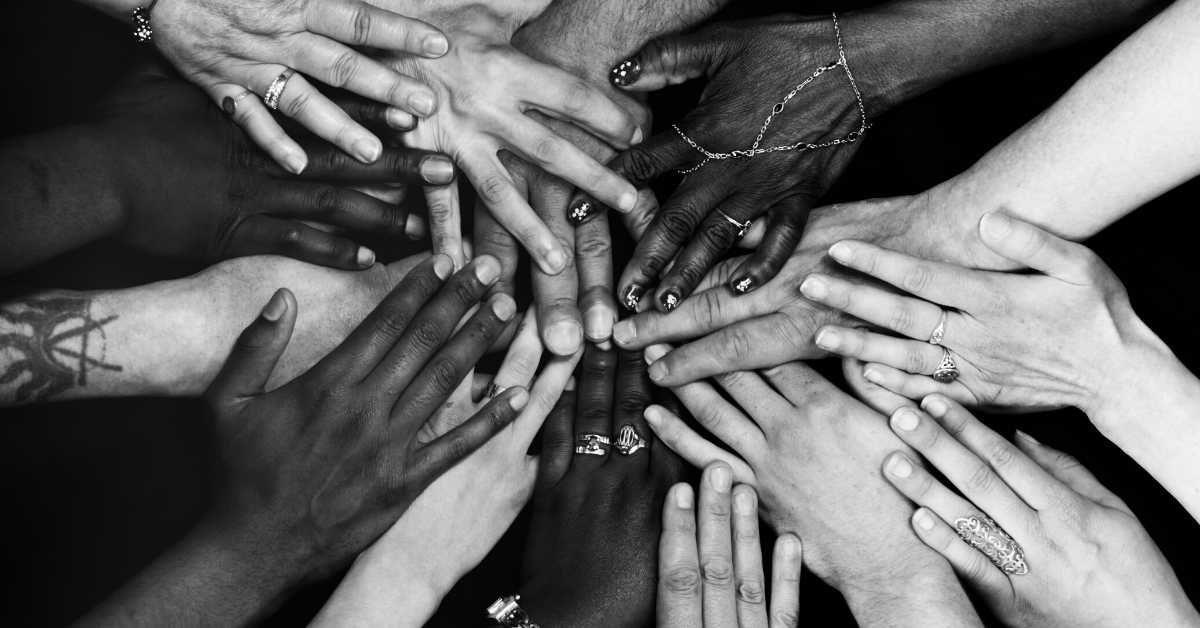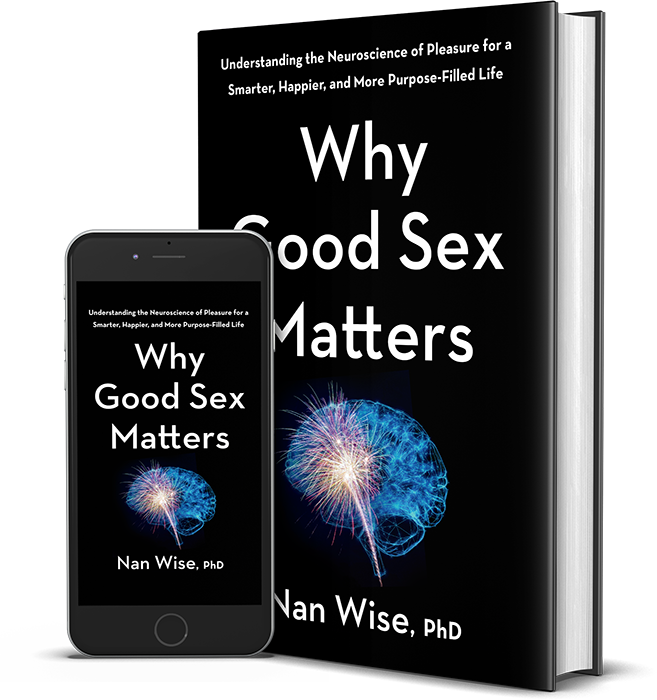It is now abundantly clear to all that our nation is deeply in crisis.
In retrospect, this has been a perfect storm. Start with a big fat dose of ever-present, ongoing systematic racism, factor in a backdrop of escalating income disparity, add in a full boil pandemic plus the harrowing torture and death of a yet another unarmed black man by the hands of the police, and now the streets are full of protestors.
The good news? Crisis presents a big opportunity for change!
As a psychotherapist/neuroscientist who teaches people how to regulate their core emotions in order to facilitate relationship healing, I am eager to see our nation take this opportunity to grow. If we work together, we can turn this breakdown into a breakthrough. A nation in crisis is a nation that has a huge opportunity for collective healing. We need to listen in to the good and caring voices of our citizens who no longer want to tolerate the intolerable. We need to think about how we as one nation can contribute to the wellbeing of all citizens, a nation where lives matter (black lives, brown lives, all lives!) more than politics, greed, or tribalism.
But how?
When I work with couples, I apply insights gleaned from research. The Gottman Institute has been instrumental in conducting systematic studies of couples showing that specific partnership habits and communication skills determine which couples thrive versus crash and burn. Let’s take these lessons about the tools for effective interpersonal relationships and see what happens when we apply them to our relationship with our own nation. It’s certainly worth a try.
The first step is understanding the series of events that have led to the breakdown. Let’s take a look.
For years, our collective wellbeing has been sorely challenged. Even before the pandemic, based on the escalating rates of depression, addiction, and anxiety disorders, we were having a rough time. More recently, in the midst of the coronavirus, the Centers for Disease Control’s Household Pulse Survey has indicated that a third of Americans now show signs of clinical anxiety or depression. People are currently stressed out and flooded by catecholamines and cortisol–the hormones our bodies release in response to ongoing challenges–that over time contribute to all sorts of physical and emotional dis-ease.

A big contributor to our collective distress has been the increasing sense of us versus them: the tribalistic approach to who is considered ingroup versus outgroup. Skin color, nationality, ethnicity, religion, or political beliefs– you name it –constitute differences that can be used to divide. One dimension that further inflames the us/them divide is income disparity. According to Inequality.org, for the past 30 years, the gap between the rich and everyone else has been growing by leaps and bounds. And guess what? According to epidemiological data, income inequality not only kills the poor but large income disparity tears apart the bonds of a sound social structure (sound familiar?). It contributes to distrust and cross-community conflict, ultimately resulting in compromised immunity and higher death rates for all–the rich included. This may not be terribly soothing to the significant number of Americans living in poverty and without access to health care, but the bottom line is that having significantly more than enough money to survive does not mean an individual will thrive.
Worn down from the ongoing stress, we’ve experienced a tipping point, culminating in the tragedy of George Floyd. The collective distress has been fully kindled and is spreading across the nation.
Amid the crisis, we need to listen in to what is good.
People are no longer willing to tolerate the implicit and explicit racism that has prevailed. Black, white, and brown people are marching side-by-side, protesting injustice and inequality. Many are no longer willing to tolerate the unimaginable and inequitable conditions that people of color have had to tolerate.
In this article, I am going to apply what we know to work in promoting healthy long-term intimate partnerships to how we, as a nation, can approach our collective crisis.
1. Recognize We Are Triggered and Attempt to Manage Our Core Emotional Reactivity to Avoid a Judgmental Attitude

There are tons of reasons that people are feeling scared, sad, and angry these days. Let’s take a brief moment to discuss our brain/minds.
Human beings come equipped by evolution with wired-in core emotional systems that can get activated by what we perceive as threats to our safety and welfare. I write extensively about how these emotions, including the defensive systems of FEAR, RAGE, and PANIC– can get triggered and imbalanced in my book, which makes it harder for us to get in touch with our more connection- friendly emotions such as CARE. CARE is the emotional system that soothes us through our tender relationships with loved ones. It is powered by our own internally manufactured opioids which gives us a feeling of wellbeing. When defensive systems are triggered, the result renders us less able to be collectively conscious and caring. We see “others” as threatening. We see “them” as the “problem”. We get panicky and lose empathy. This happens on the level of intimate relationships, and it is what drives a great deal of relational distress.
And when we are triggered, we judge, and we assign blame. If you have a look at the signs and symptoms of an unhealthy relationship, first and foremost is the rush to judgment and blame (sound familiar?). Partners refuse to take responsibility for what they are creating. It becomes all about the other partner’s behavior.
In the current big picture, it is very triggering to watch the news and see such chaos in our country and big chasms between political world views. It is natural to think that the other side is ignorant or wrong. But when we jump into judgments, we lose the ability to listen and learn.
A new skill set to develop?
One of the habits that we know predict better outcomes in intimate relationships is the ability to regulate our core emotional reactions. So, when we feel misunderstood or mistreated, we don’t immediately react badly. Responding constructively to our upsets with others is a superpower of the relationship warrior. Relationship warriors don’t avoid conflict. Quite the contrary. They take calm stands for what they need or want and are positive and persistent in pushing back on their partners.
How to apply this to our relationship with our nation?
Rather than becoming immediately defensive and climbing on the potently divisive political bandwagons, let’s think about how we can approach this situation by asking questions that can help us understand what’s happening in the biggest of pictures.
A great example on the national level is how the peaceful protestors are taking to the streets, firmly standing up about the unacceptability of systematic racism that has enabled the horrific abuse of our citizens of color at the hands of the police.
2. Find the Understandable Part
When our intimate partners act in ways that we think of as “selfish”, “crazy” or “unacceptable” the relationship warrior takes a step back and figures out that no matter how “wrong” the partner’s behavior appears, it had to make sense to them in some way. In other words, the relationship warrior takes a moment to self-soothe, gets curious, and tries to understand their partner’s motives and world view.
As a nation?
We may not agree with each other politically, but if we figure out that at the root of other people’s beliefs is some kind of positive intention that makes sense to them, we can avoid the rush to judge that inflames defensiveness and reactivity. For us to thrive as a nation we need to dampen our defensiveness to be creative and productive.
We need to stay focused on the actual issues and the questions about how we can be helpful. How can we heal as a nation? How can we combat our systematic racism? How can we effectively cope with the coronavirus? How can we make sure that people get access to the health care they need? How do we help businesses that are failing? How can we team up to make the quality of life good for all?
The best relationships operate like democracies. Each partner gets a vote. We need to understand that everybody must count in the biggest of pictures for this country to work. Just like how couples need to consider each other’s wants and needs as being equally important, we as a nation need to look at how the collective good will loom large and help everyone thrive.
3. Commit to Working Together
Reaching across the divide of a couple-conflict can be a good model for reaching across the political aisle.
Relationship warriors know that they need to reassure their partners that they are committed to creating win-wins. Ultimately, over time, things have to work for both, or they will not work at all. When couples get embroiled in repetitive or unproductive arguments, a skilled partner will come into the center and say I” want to work with you, will you work with me?”
If the partner is not responsive to their offer, they won’t make a federal case about it. They won’t go into a rant about their partner’s shortcomings. They will wait until the partner cools down and try again. And if the partner still doesn’t want to cooperate, they will refuse to do business as usual, stay cool and calm, and make their point with persistence and perseverance.
As a country?
We need to think about how we can offer each other assurance that we will seek ways to be constructive and productive. We can start locally. Barack Obama has noted that while most of us focus on the biggest picture in politics–the president and federal government- the level that has the most impact on reforming the police and criminal justice policies, in fact, are the state and local governments. We can reach across the aisles in our towns, cities, and states and let our officials know that we will work with them for the benefit of all.
View this post on Instagram
4. Communicate, Communicate, Communicate
And in order to effectively communicate, we must master the art of listening. That’s a whole course in itself. I offer tools to couples to train us in how to actively listen to each other. Often, if that is done effectively, fixable issues can be resolved, and the kinds of perpetual conflicts that all couples have can be loosened and softened enough such that the destructive gridlock that destroys connection is averted.
Beyond listening, we also need to identify and explain what is at stake. What that means is that we need to calmly explain to our partner what underlies the issue that makes it so important to us. For example, if I make a big stink over my husband making what he thinks is a relatively minor decision without my input, the issue for me might be that I am worried that he will end up making bigger decisions without me. People who are able to express the reasons why they are upset and what’s at stake in their arguments tend to get better results.
As a collective?
We can listen to what’s at stake for people on the other side of the argument. Just like in relationships, when it comes to politics and policies, people run into trouble when they become defensive and react as opposed to connect and listen deeply. As a nation, we need to listen to the voices of protestors and truly grasp what is at stake for those who have taken to the streets. And it cuts both ways. As hard as it is, we need to listen to the voices of those who we see as the “others” to understanding what is driving their upsets as well.well.
5. Building Bonds by Focusing on the Positive
Couples who thrive spend time and energy building their emotional bonds and fostering shared goals and meaning. Certainly, it is easier to conceive of that in terms of intimate partnerships, but how can we envision building our bonds as a nation?
Here’s a thought. In the wake of the pandemic, we’ve encountered a major threat to our nation. Unfortunately, it has taken an unfair toll on our poor, and people of color, who have suffered disproportionately.
But it is also true, on another level, that the virus has taken the lives of people of all ages and all skin colors, too. Being human makes us susceptible.
And we share this; Every human being wants to survive and thrive. We all want a good outcome for our children.
Being human makes us susceptible.
And we share this; Every human being wants to survive and thrive. We all want a good outcome for our children.
A side note: We must remember, although we tend to think of ourselves as a democracy, our votes don’t quite work that way. If the popular vote, rather than the electoral college, elected the president, we would not have our current administration in power. So, our people as a whole are not as divided as our politics appears. Overall, the picture is more positive. Optimism is brewing. In a recent interview, former President Barack Obama observed that the fact that protestors appear to represent all walks of life is a good sign of our country’s call to action to collectively address the systemic underlying racism that pervades.
Speaking of a call to action, just this week, I participated in a workshop, “Challenging Racial Disparities: A Call to Action” hosted by Rutgers’s School of Social Work. Over one thousand people enrolled. The keynote speaker, Dr. Robin DiAngelo, author of “White Fragility: Why It’s So Hard for White People to Talk About Racism” made it abundantly clear that we have much work to do as a people to not only reverse racism but to become anti-racist. So much of our white privilege is so deeply embedded in our implicit, automatic brain/minds, that we remain largely unconscious of how large this still looms in ourselves and our culture.
But there’s more good news.
We can build the nation’s collective emotional bond by focusing on how wonderfully the vast majority of people behave. It’s true. Most people are good and kind and caring. Throughout the pandemic, many have gone out of their way to help, contributing money, time, and energy. People went out of their way to adopt shelter pets so we could elicit our CARE systems by fostering connections with our four-legged friends. And even before states shut down, most citizens were proactive about sheltering in place. Our frontline heroes have served, and many have lost their lives to protect and care for us.
Unfortunately, when we watch the news, what looms large are the negatives. That is how our brains are wired. It makes sense. Negative information that is potentially threatening is prioritized for survival. It hijacks our attention and activates the defensive emotional systems that make us more reactive and divided. When we get thus triggered, our decision-making gets compromised.
So, What Can We Do to Heal Our Nation?
View this post on Instagram
For starters, we can choose to put our attention on the more positive aspects of our people, so we can take more positive action.
Then we can get curious about each other’s experiences and think about our collective as a whole- instead of red versus blue — or Democrat versus Republican- or black versus white vs brown.
We can remember at the end of the day that we are all Americans. We have a duty to ourselves and each other to think about the biggest picture.
Let’s take a lesson from effective partners.
We can pay good attention to each other. We can listen to the concerns and the hopes and the fears of the people who are speaking out in the streets. We can listen to the voices of social media without rushing into reaction and judgment and distraction. And last but not least we need to pursue shared meaning. Healing our nation is a goal we can all embrace. There’s much hard work to do. Let’s get it done together.
UP NEXT: Overcoming Pain and Anxiety With This Mental Technique




